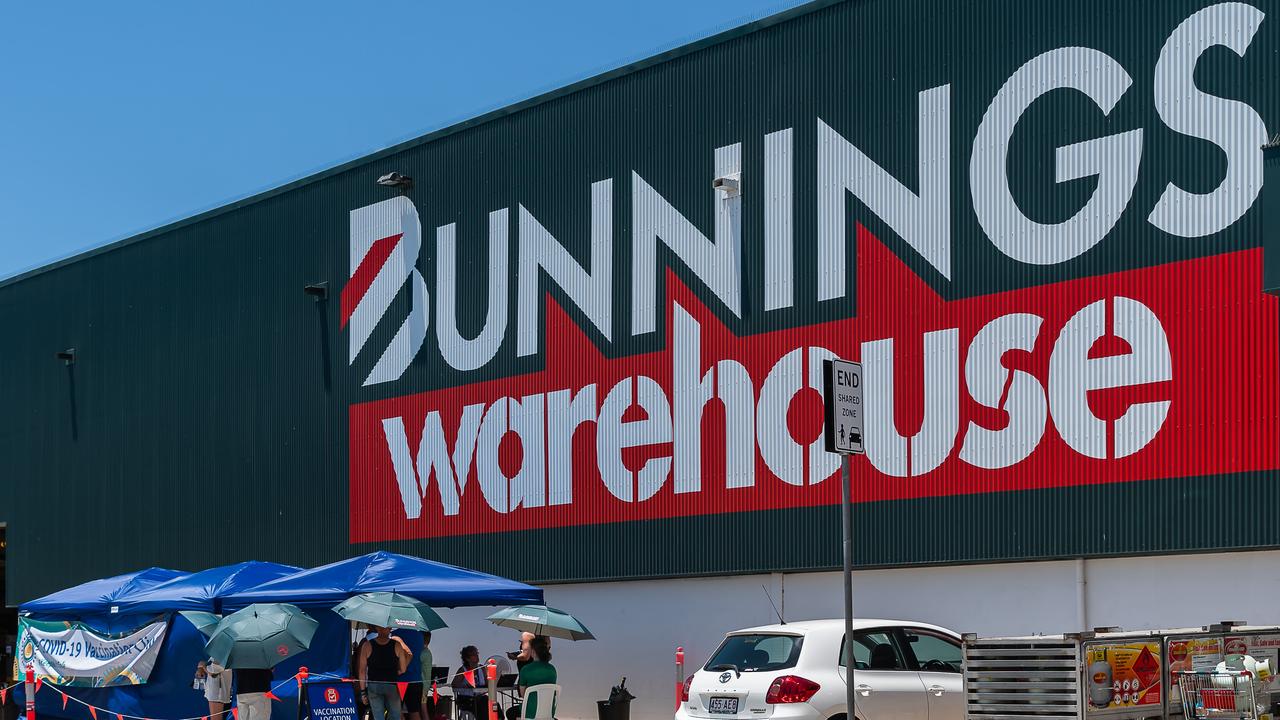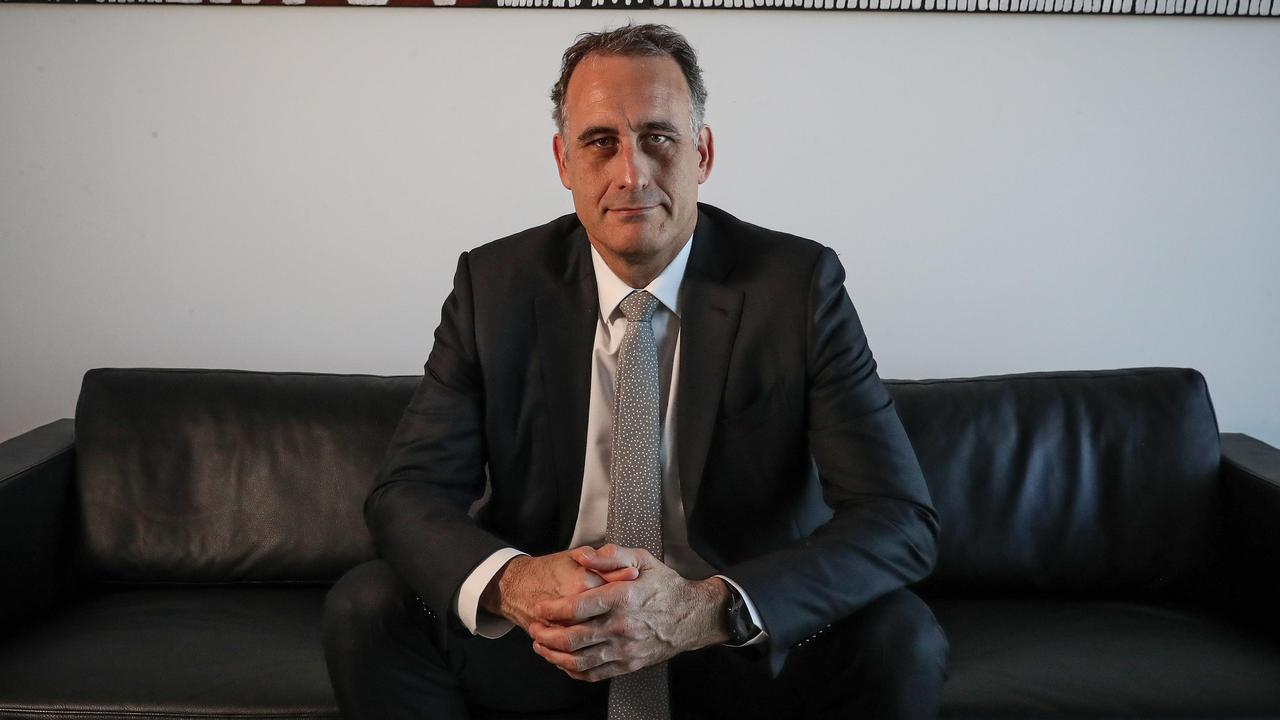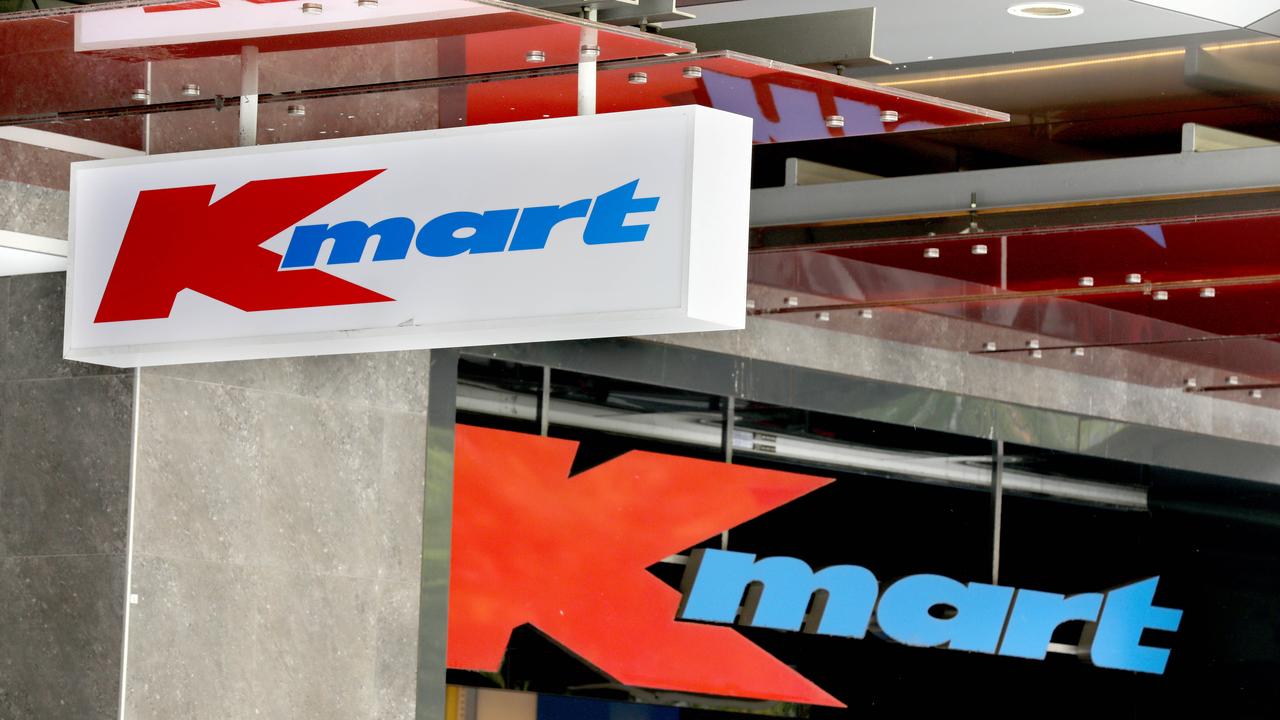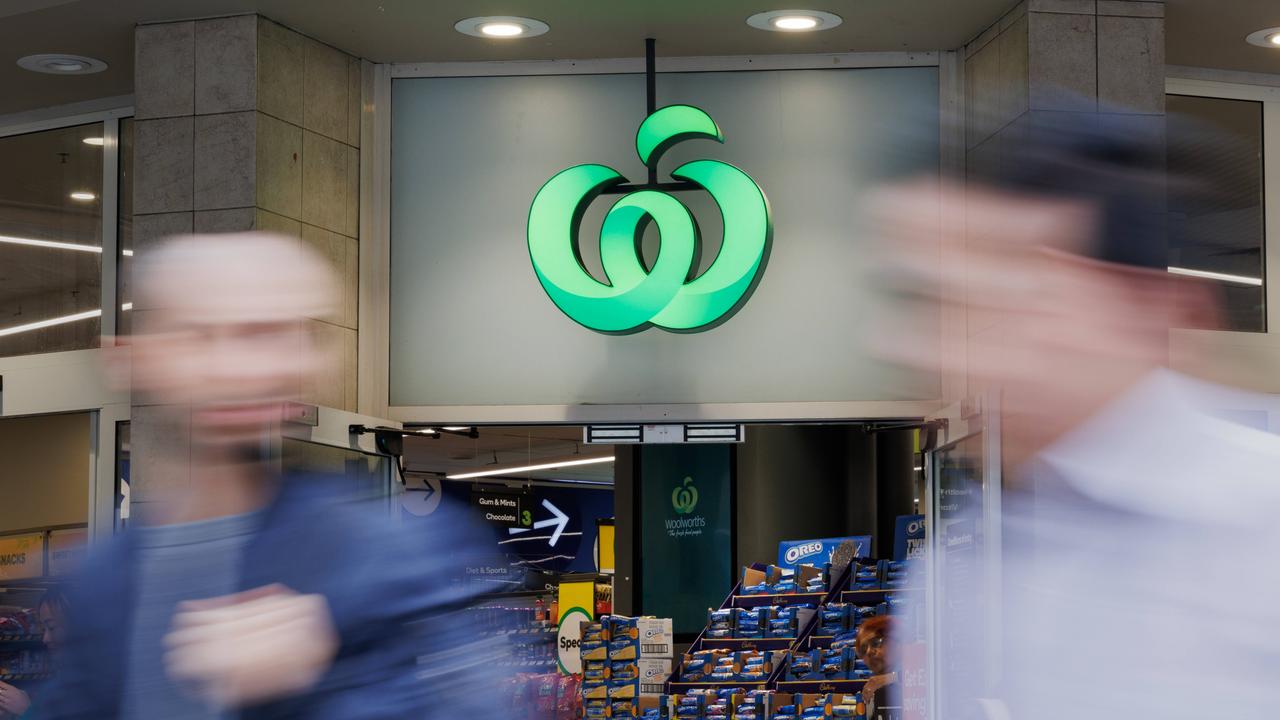Price rises ‘a last resort’ for Kmart owner Wesfarmers despite Covid woes
One of Australia’s biggest retail stables has revealed just how badly it was affected by coronavirus lockdowns and supply chain woes.

The Covid toll has finally caught up with retail conglomerate Wesfarmers but management has pledged raising prices will only be “a last resort” to combat inflation pressures.
The widespread closure of Officeworks and Kmart stores last year and efforts to pay staff during lockdowns weighed heavily on Wesfarmers’ first-half result on Thursday, with even the company’s flagship earner Bunnings Warehouse slipping during a chaotic end to the year.
The $62bn Wesfarmers had been one of the biggest retail winners of the pandemic until the arrival of the Delta strain last June, with ensuing store closures, supply chain woes and safety requirements sapping its profits and forcing it to slash its payout to shareholders.
Wesfarmers, which paid full-year dividends of $1.70 and $1.78 in 2020 and 2021, has cut its interim payout from 88 cents to 80 cents. This is fully franked and will be paid on March 30.

Investors were clearly unimpressed with Thursday’s interim earnings release, with the company shedding $3.7 billion in value by lunchtime as shares fell 6.2 per cent to $51.53.
The blow to the firm’s Kmart and Target division was particularly fierce over the Delta period, with 34,000 lost trading days and an additional $80m in costs booked, half of which went to keeping its staff paid during extended lockdowns.
Even Bunnings Warehouse lost momentum over the six months to December 31; its pre-tax earnings contribution dipping slightly to $1.26bn even as revenue rose.
Wesfarmers management described the half as its most challenging since the pandemic hit Australia’s shores.

“While many practices to manage the ongoing disruptions associated with Covid-19 have become increasingly integrated into the Group’s normal operating processes, extended government-mandated store closures and trading restrictions in Australia and New Zealand meant that the first half of the 2022 financial year was the most disrupted period since the onset of the pandemic,” the company told shareholders.
Chief executive Rob Scott said rising inflation had lifted the cost of raw materials but pledged in a cmedia call that raising retail prices would be “a last resort” as Covid continues to eat away at household budgets.
“Over the next year we’re expecting that households are going to be even more focused on value through Covid. Value probably wasn’t the number one focus of many consumers as they were struggling to access products, given some of the restrictions on supply through the lockdowns, but I think price is going to become increasingly important,” Mr Scott said.
Revenues flowing into the Perth-based firm remained relatively flat at $17.8bn over the six-month period as demand for products remained high, but its overall profit took a 12.7 per cent dive to $1.2bn on account of lost trading days, higher safety costs and additional payroll support and assistance programs for staff.
Across 20,000 trading days, customers were not allowed into Wesfarmers stores at all, during which it continued to pay its staff and rent.
“The Group continued to provide paid pandemic leave to team members and continued to pay all permanent and many casual team members through periods of prolonged lockdown, even where there was no meaningful work for them and when they were required to isolate,” it said.
“This investment, which totalled approximately $37m during the half, provided much-needed certainty to team members and their families and benefited the Group’s businesses as they sought to re-engage teams when restrictions eased.”

The earnings contribution from Wesfarmers’ chemical, energy, and fertiliser division improved by more than a third to $218m thanks to higher gas and ammonia prices, but its retail businesses all slipped backwards.
Earnings across the Kmart Group – which includes Kmart, Target, and catch.com.au – slipped 63.4 per cent to $178m as stores closed and supply chain chaos limited the range of stock on shelves.
Officeworks revenue was up 3.7 per cent to $1.58bn thanks to technology and furniture sales, but earnings dropped 18 per cent to $82m also on account of store closures and disruptions.
Bunnings lifted its revenue to $9.2bn, but extra costs of keeping staff and customers safe ate into its bottom line earnings before tax – a drop of 1.2 per cent to $1.26bn.
Wesfarmers is now trading more than 22 per cent down on the record $67.20 price it hit on the ASX back in August.



